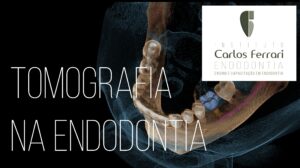Doubts about endodontic treatment. Main questions from patients in our clinical practice and the most appropriate answers for better acceptance of the treatment.
Why do I need a root canal?
Does root canal treatment hurt? And afterwards?
Does root canal treatment darken the tooth?
Does root canal treatment weaken the tooth?
Will root canal treatment cause the tooth to lose its support?
Does root canal treatment kill the tooth?
How many appointments does the treatment take?
What is the success rate of the treatment?
In: Rhode et al. ANALYSIS OF THE WAVES OF ANXIETY IN ENDODONTIC PATIENTS AND THE MANAGEMENT BY DENTIST SURGEONS. International Health Congress. No. 10. 2023.
INTRODUCTION Endodontic treatment encompasses the science and art surrounding the etiology, prevention, diagnosis and treatment of dental pulp alterations and their effects on the periapical region and the body (LEONARDO et al., 2008). It consists of enlarging the root canal to remove remaining vital or necrotic tissues (SIQUEIRA et al., 2011; ZEHNDER, 2006) through anesthesia, opening, pulp removal, root canal shaping, disinfection and filling, and can trigger a certain amount of fear and anxiety in patients (DOU et al., 2018).
Anxiety is defined as a complex, diffuse and unpleasant emotion, expressed by a feeling of fear and emotional tension that accompanies bodily symptoms and signs (DEL POZO et al., 2015). Dental treatments generally cause great anxiety, being the main reason for delaying or canceling appointments (DE JONGH et al., 2002), and can lead to complications in oral health-related quality of life (CARTER et al., 2015). Studies have shown that avoiding or delaying appointments perpetuates further anxiety, building a vicious circle of anxiety and fear (DE JONGH et al., 2002; ARMFIELD et al., A, 2006). Because it affects a large part of the world's population, and currently, according to the WHO (World Health Organization), Brazil is in first place in the ranking of countries with this condition, anxiety is generally an obstacle when it comes to dental treatment, more specifically endodontic treatment.
It affects individuals of all ages and from different social classes, and is considered an apprehension on the part of dentists and patients in routine oral health care (EITNER et al., 2006). Studies show that appointment cancellations associated with anxiety range from 5.5% to 15.5% (CARTER et al., 2015a; CARTER et al., 2015b; LOCKER et al., 2001; NICOLAS et al., 2007). It is reported by Carter et al. (2015) that there are five pathways related to the cognitive conditioning of fear and anxiety in dentistry, corresponding to: (I) conditioning: patient's own bad previous experiences, (II) vicarious ia: friends' or acquaintances' accounts of their unpleasant experiences with endodontic treatment, (III) parental: parents' or caregivers' fears about endodontic treatment, (IV) verbal threat: threat of being taken to the dentist as a form of punishment, (V) informational: negative characterization of the dental surgeon in the media (CARTER et al.a, 2015; CARTER et al, 2015b; ARMFIELD B, 2011) The dental surgeon is solely responsible for carrying out treatment and caring for his anxious patients. Currently, there are numerous non-pharmacological practices that can be adopted in the dental office to help these patients make better progress with their dental care needs (ARMFIELD et al.,2013). These include practices such as verbal reassurance (iatro-sedation), relaxation, behavioral and psychological techniques (DIAS et al., 2008).
Also, audiovisual resources as distractions for patients in the waiting room and in the dental chair (CRAVEIRO et al., 2020), in addition to the inclusion of music during the procedure, benefit to mitigate the noise of dental instruments (KYM et al., 2011).
Doubts about endodontic treatment.





